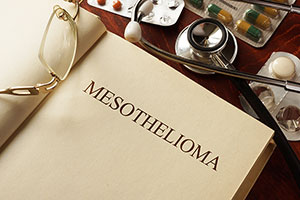John Wineland died from mesothelioma. Wineland’s personal representative sued Todd Shipyard and other defendants for negligently exposing Wineland to asbestos during Wineland’s service in the Navy.
Todd Shipyard filed a Daubert motion to exclude the testimony of four expert witnesses. Recognizing that the shipyard’s arguments addressed questions of credibility that should be decided by a jury, the court determined that the opinions of each expert were admissible.
Capt. Arnold Moore
Captain Moore was offered as an expert on “maintenance practices and conditions aboard Navy ships.” He has professional experience with “naval warships and their machinery, the operation and maintenance of steam propulsion plants, the repair and overhaul of Navy ships, [and] the role of Enginemen aboard naval ships.”
Moore reviewed personnel records regarding Wineland’s naval service, including records of his assignment to the engine room of the USS Tuscaloosa. That ship was overhauled at Todd Shipyard during Wineland’s service. Wineland devoted extensive time to preparing for and overseeing the overhaul.
Moore determined that the diesel engines and heated systems on the Tuscaloosa were insulated with asbestos. Records showed that Wineland frequently visited spaces where Todd Shipyard workers were performing repairs on the Tuscaloosa to observe the repairs and to inspect the repaired equipment.
Moore opined that removal and replacement of gaskets during the overhaul would have produced airborne asbestos fibers. He concluded that Wineland was likely exposed to asbestos dust while the ship was being overhauled at Todd Shipyard.
Todd Shipyard objected that Moore explained the basis for his opinions in insufficient detail. The shipyard noted that Moore identified no witnesses who actually saw Wineland performing the duties that Moore described.
The court decided that Moore’s methodology was reliable. In light of his experience and knowledge of the duties Enginemen, Moore’s review of records allowed him to determine the work that Wineland did while the ship was docked at Todd Shipyard. He did not need eyewitness accounts to understand that Wineland did the kind of work that exposes Enginemen to asbestos. Because his opinions had a reliable basis and would be helpful to the jury, the court denied the Daubert motion as to Moore.
Steven Paskal
Paskal is a certified industrial hygienist. His testimony was offered to explain “how asbestos reacts when released into the air, the risks it poses to human health, and how to mitigate those risks.” Paskal also expressed the opinion that Wineland was exposed to asbestos during his naval service and that work practices in shipyards during Wineland’s service were not designed to minimize exposure to asbestos particles.
Paskal based his opinions on his own experience as an industrial hygienist for the Navy and on his review of Moore’s reports. Todd Shipyard objected that Paskal had no factual basis for his opinions because he did not know the frequency, intensity, or duration of Wineland’s asbestos exposure at Todd Shipyard.
The court was unimpressed with the objection. Paskal was entitled to rely on Moore’s conclusion that Wineland was exposed to asbestos when gaskets and packing were removed and replaced. Moore’s review of maintenance and personnel records satisfied him that Wineland was frequently present when asbestos was released into the air. Details about the intensity and duration of those exposures were not necessary to the conclusion that Wineland was, in fact, exposed to asbestos. Paskal therefore had a factual basis for his opinions.
Paskal’s own training and experience allowed him to determine that each exposure to asbestos was “a million times greater” than Wineland would otherwise have experienced. He also offered the noncontroversial opinion that each exposure contributes to the risk of developing mesothelioma.
Todd Shipyard nevertheless complained that Paskal did not know how much cumulative exposure Wineland received at the shipyard. Apparently recognizing that a cumulative exposure rate was not necessary to Paskal’s opinion, Todd Shipyard argued in a reply brief that Paskal had insufficient evidence of exposure to support an opinion that Wineland’s exposure at the shipyard was a substantial factor in the development of his mesothelioma.
While Ninth Circuit precedent requires evidence that asbestos exposure was sufficiently significant to contribute to mesothelioma, the court was satisfied that Moore’s opinion supplied a factual basis for Paskal’s opinion. Moore determined the length of time that the ship was docked in the shipyard and the approximate frequency with which Wineland supervised and inspected work during the overhaul. That testimony provided an underpinning for Paskal’s causation opinion.
Dr. David Zhang
Dr. Zhang is a physician who practices occupational medicine. In his opinion, Wineland suffered from asbestos-related pleural malignant mesothelioma. Todd Shipyard argued that Dr. Zhang had no factual basis for his opinion that Wineland was exposed to asbestos or that the asbestos caused his cancer.
The court easily dismissed that challenge. Moore and Paskal provided the factual basis for the conclusion that Wineland was exposed to asbestos. Since asbestos exposure is the only known cause of mesothelioma, the conclusion that asbestos exposure harmed Wineland is inescapable.
Charles Ay
Charles Ay is an asbestos consultant. He worked as an asbestos insulator in the shipyard industry for twenty years, then began a career in asbestos detection, testing, and abatement. He expressed opinions about the presence of asbestos in pipe insulation during the 1970s, the consistent methods used to remove pipe insulation in a variety of industries during the 1970s, and the concentrations of asbestos fibers that are present when insulation is removed from pipes.
Ay’s testimony was obviously relevant. Todd Shipyard challenged it on the ground that Ay never worked at Todd Shipyard. The notion that “only our employees can testify against us” is not supported by precedent. Ay had experience in shipyards. Todd Shipyard offered no reason to believe that its asbestos removal procedures were different than those in other shipyards. At best, Todd Shipyard’s objections went to the weight a jury might give to Ay’s testimony, not to its admissibility.




